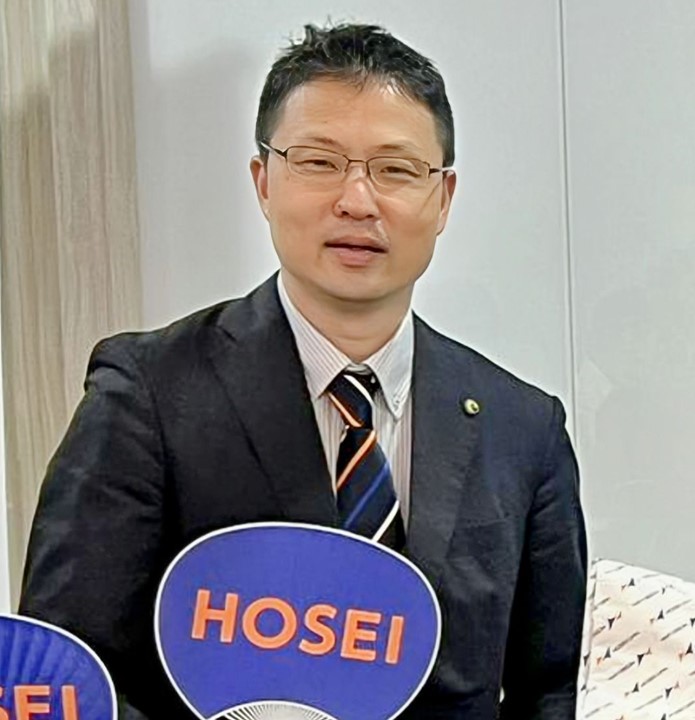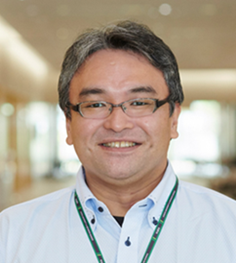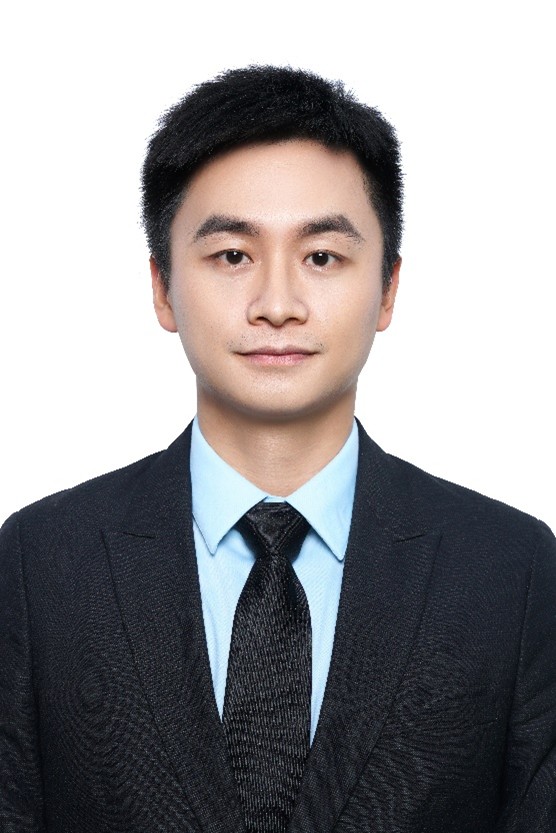Keynote Speakers

Prof. Tomonori Kato
Hosei University, Japan
Biography:
Tomonori Kato is a full professor in the
Department of Mechanical Engineering,
Faculty of Science and Engineering, Hosei
University, Japan.
He received his M.Eng. and D.Eng. degrees
from the Tokyo Institute of Technology in
2004 and 2007, respectively. In 2007, he was
certified as a Professional Engineer, Japan
(P.E. Jp) in the field of Mechanical
Engineering.
From 2004 to 2010, he served as an assistant
professor at the Tokyo Metropolitan College
of Technology. He then held positions as
assistant professor and associate professor
at Fukuoka Institute of Technology from 2010
to 2024. In the 2018 academic year, he was a
visiting associate at the University of
Nottingham, UK. Since April 2025, he has
also been serving as an adjunct faculty
member at the University of Wah, Pakistan.
His research interests include control
engineering, precision engineering, and
pneumatics. He is a member of JSME, JSPE,
SICE, JFPS, and IPEJ.

Prof. Takahiro Namazu
Kyoto University of Advanced Science, Japan
Biography:
Takahiro Namazu received the B.S., M.S., and
Ph.D. degrees in mechanical engineering
fromRitsumeikan University, Kusatsu, Japan,
in 1997, 1999, and 2002, respectively.From
2002 to 2006, he was an Assistant Professor
with the Department of Mechanical and Systems
Engineering, Graduate School of Engineering,
theUniversity of Hyogo, Himeji, Japan. In
2007, he became an Associate Professorat the
university. In 2010, he joined the
Precursory Research for Embryonic Science and
Technology (PRESTO) program, “Nanosystems
and Emergent Functions”of the Japan Science
and Technology Agency (JST), as a
Researcher. In the JSTPRESTO program, his
research project was the emergence of self-propagatingexothermic
nanomaterials for future semiconductor
industry and human life care. In 2016, he
became a Professor of the Department of
Mechanical Engineering, Aichi Institute of
Technology, Toyota, Japan. In 2019, he
joined the Kyoto University of Advanced
Science (KUAS), Kyoto, Japan, as a Visiting
Professor. In 2020, he will become a
Professor with the Faculty of Engineering,
KUAS.
He is currently engaged in studies on
functional film materials, such asself-propagating
exothermic materials, and their applications
to micro/nanoelectro-mechanical systems
(NMEMS). His research interests also include
thedevelopment of material testing
techniques for measuring the
mechanicalproperties of micro/nanoscale
materials, such as carbon nanotubes and
siliconnanowires, which focuses on
clarifying the nanomaterials’ size effect
phenomenaand these mechanisms. The
evaluation of the reliability of MEMS
andsemiconductor devices is included as well
in his interests for realizing thedesign of
ultra-long life microdevices. Dr. Namazu has
earned over 20 research awards for
hisoutstanding materials research results
and his contributions to the evolutionof the
micro/nanoscale materials science field in
the world.

Prof. Takashige Omatsu
Chiba University, Japan
Biography:
Takashige Omatsu (B.S. (1983), Ph.D. (1992)
from the University of Tokyo) is a professor
of Molecular Chirality Research Center in
Chiba University. His research interests
cover a variety of areas, such as nonlinear
optics, solid-state and fiber lasers,
singular optics, and super-resolution
spectroscopy. Recent work has focused on
micro-nano fabrication with structured light
possessing orbital angular momentum, and it
will pave the pathway towards advanced
fundamentals and innovative applications,
including metasurfaces, plasmonics, silicon
photonics, and nanoscale imaging systems. He
has already published 200+ refereed journal
articles, and he has performed 200+ invited
presentations. He is currently working as an
Editor-in-Chief of Journal of Nanophotonics
and Photonics Review, and he is also serving
as a steering committee chair of the
conference on the laser and optoelectronics
pacific-rim (CLEO Pacific-rim). Professor
Omatsu is a Fellow of Japan Society of
Applied Physics (JSAP), OPTICA and SPIE. He
is a Visiting Professor of Ajou (Korea),
Fujian Normal (China), and Tianjin (China)
Universities and a chair professor of
National Yang Ming Chiao Tung University
(Taiwan).

Prof. Shuai Yang
Chongqing Technology and Business University, China
Biography:
Shuai Yang is a Full Professor and Vice-Dean
of the College of Mechanical Engineering,
Chongqing Technology and Business
University, China.
He received his M.Eng. and D.Eng. degrees
from Chongqing University in 2008 and 2012,
respectively. In 2017, He received the Ph.D.
degree in mechanical engineering from
University of Ottawa, Canada. Since December
2022, he has been a Full Professor with
Chongqing Technology and Business
University, China. In July 2024, he became
the Vice-Dean of the College of Mechanical
Engineering, Chongqing Technology and
Business University, China.
His research interests include vibration
control, fault diagnosis and health
management of manufacturing systems.
